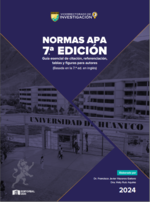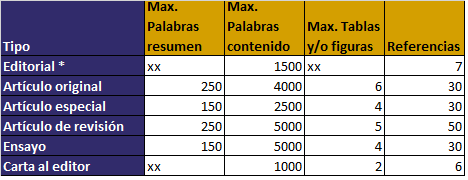Estilos de crianza y adicción a las redes sociales en adolescentes de la selva, Perú
DOI:
https://doi.org/10.37711/desafios.2023.15.1.407Palabras clave:
adicción, adolescentes, estilos de crianza, redes sociales, padresResumen
Objetivo. Evaluar la relación de los estilos de crianza y la adicción a las redes sociales en estudiantes de instituciones educativas estatales de la selva del Perú, 2022. Metodología. La investigación tuvo un enfoque cuantitativo, correlacional, no experimental y transversal. La población estuvo conformada por 300 estudiantes; mientras que la muestra fue formada por 250 estudiantes, incluidos a partir de un muestreo no probabilístico de tipo intencional. Se
empleó la escala estilos parentales de Steinberg y el cuestionario de adicción a las redes sociales (ARS-6). Se utilizó la prueba estadística rho de Spearman y el test de Fisher. Resultados. Al verifcar la relación de los estilos de crianza, en la dimensión compromiso se apreció un coeficiente rho = -0,112; p = 0,07), no existía relación en la dimensión control conductual (rho = -0,103), se evidenció relación significativa en la dimensión autonomía (rho = 0,148, p = 0,020).
Conclusión. Se pudo comprobar que los estilos de crianza en sus dimensiones compromiso y autonomía no se relacionaban con la adicción a redes sociales; sin embargo, la dimensión autonomía sí tuvo relación en la adicción a redes sociales en estudiantes de instituciones educativas estatales de la selva del Perú, 2022.
Descargas
Citas
Andreassen, C. S., Griffit0hs, M., Gjertsen, S., Krossbakken, E., Kvam, S., & Pallesen, S. (2013). The relationships between behavioral addictions and the fve-factor model of personality. Journal of Behavioral Addictions, 2(2), 90–99. https://doi.org/10.1556/JBA.2.2013.003
Aren, E., y Ruiz, M. (2021). Adolescere 2021-XXV Congreso Telemático. In Revista de Formación de la Sociedad Española de Medicina de la Adolescencia, 9(2695–5474), 46–54). https://www.adolescere.es/revista/pdf/volumen-IX-n2-2021/Adolescere-2021-2-WEB.pdf
Arias, J., y Cáceres, M. (2021). Estilos de crianza y adicción al internet en tiempos del Covid-19. Conecta Libertad. https://revistaitsl.itslibertad.edu.ec/index.php/ITSL/article/view/234/419
Buran Kose, O., y Dogan, A. (2019a). The Relationship between Social Media Addiction and Self-Esteem among Turkish University Students. Addicta: The Turkish Journal on Addictions, 6(1), 175–190. https://doi.org/10.15805/addicta.2019.6.1.0036
Buran Kose, O., & Dogan, A. (2019b). The Relationship between Social Media Addiction and Self-Esteem among Turkish University Students. Addicta: The Turkish Journal on Addictions, 6(1), 175–190. https://doi.org/10.15805/addicta.2019.6.1.0036
Canas-Simião, H., Reis, C., Carreiras, D., Espada-Santos, P., & Paiva, T. (2022). Health-Related Behaviors and Perceived Addictions: Predictors of Depression during the COVID Lockdown. Journal of Nervous and Mental Disease, 210(8), 613–621. https://doi.org/10.1097/NMD.0000000000001503
Capano, A., Gonzales, M., y Massonnier, N. (2016). Estilos relacionales parentales: Estudio con adolescentes y sus padres. Revista de Psicologia, 34(2), 413–444. https://doi.org/10.18800/psico.201602.008
Capano, Á., & Ubach, A. (2013). Parenting Styles, Positive Parenting, and Parents Formation. Ciencias Psicológicas, 7(1), 83–95. http://www.scielo.edu.uy/pdf/cp/v7n1/v7n1a08.pdf
Cellini, N., Canale, N., Mioni, G., & Costa, S. (2020). Changes in sleep pattern, sense of time and digital media use during COVID-19 lockdown in Italy. Journal of Sleep Research, 29(4). https://doi.org/10.1111/JSR.13074
Escurra, M., & Salas, E. (2014). Construction and Validation of the questionnaire on social networking Addiction (ARS). LIBERABIT, 74–91. http://www.scielo.org.pe/pdf/liber/v20n1/a07v20n1.pdf
Estrada, E., y Gallegos, N. (2020). Funcionamiento familiar y adicción a redes sociales en estudiantes de educación secundaria de Puerto Maldonado. Revista San Gregorio, 1(40). https://doi.org/10.36097/rsan.v1i40.1393
Internet World Stats. (2022). Internet World Stats. https://www.internetworldstats.com/stats.htm
IPSOS. (2021). Redes sociales 2021. https://www.ipsos.com/es-pe/redes-sociales-2021
Jovanovic, T., Visnjic, A., & Gmijovic, M. (2021). The association between depression and ansiety symptoms with six core components of social networking sites adiction: a cross-sectional study in Serbia. Acta Medica Medianae, 60(1), 28–37. https://doi.org/10.5633/amm.2021.0104
Ko, C. H., Yen, J. Y., Chen, C. S., Yeh, Y. C., & Yen, C. F. (2009). Predictive values of psychiatric symptoms for internet addiction in adolescents: a 2-year prospective study. Archives of Pediatrics & Adolescent Medicine, 163(10), 937–943. https://doi.org/10.1001/ARCHPEDIATRICS.2009.159
Lachuma Huansi, U. R. (2021). Funcionamiento familiar y adicción a redes sociales en estudiantes del nivel secundario. Revista Muro de La Investigación, 6(2), 60–76. https://doi.org/10.17162/rmi.v6i2.1638
Maftei, A., & Enea, V. (2020). Symptoms of internet gaming disorder and parenting styles in romanian adolescents. Psihologija, 53(3), 307–318. https://doi.org/10.2298/PSI190808008M
Martínez Chairez, G., Torres Díaz, M., y Ríos Cepeda, V. (2020). El contexto familiar y su vinculación con el rendimiento académico. IE Revista de Investigación Educativa de La REDIECH, 11, 1–17. https://doi.org/10.33010/IE_RIE_REDIECH.V11I0.657
Merino, C., y Arndf, S. (2004). Análisis factorial confrmatorio de la Escala de Estilos de Crianza de Steinberg: validez preliminar de constructo. Revista De Psicología, 22(2), 189-214. https://doi.org/10.18800/psico.200402.002
Pfizer. (2009). La juventud y las redes sociales. Fundación Pfizer.
Sahni, H., & Sharma, H. (2020). Role of social media during the COVID-19 pandemic: Benefcial, destructive, or reconstructive? International Journal of Academic Medicine, 6(2), 70–75. https://doi.org/10.4103/IJAM.IJAM_50_20
Salas, E., Copez, A., & Merino, C. (2020). Is it really Too Short? Brief Version Of the social Network Addiction Questionnaire (ARS-6). Health and Addictions, 20(2), 105–118. https://ojs.haaj.org/?journal=haaj&page=article&op=view&path%5B%5D=536&path%5B%5D=pdf
Steinberg, L., Lamborn, S. D., Dornbusch, S. M., & Darling, N. (1992). Impact of parenting practices on adolescent achievement: authoritative parenting, school involvement, and encouragement to succeed. Child Dev., 63(5):1266-81. doi: 10.1111/j.1467-8624.1992.tb01694.x
Sun, Y., & Zhang, Y. (2020). A Review of Theories and Models Applied in Studies of Social Media Addiction and Implications for Future Research. Addictive Behaviors, 114. https://doi.org/https://doi.org/10.1016/j.addbeh.2020.106699
Tur-Porcar, A. (2017). Parenting styles and Internet use. Psychology & Marketing, 34(11), 1016–1022. https://doi.org/10.1002/MAR.21040
Vargas, M., Parra, M., Cortez, W., y Vargas, R. (2021). Hábitos de acceso y adicción a redes sociales virtuales en estudiantes de secundaria de Unidades Educativas de Sucre. Current Opinion Nursing & Research, 3(1), 4–15. http://ucbconocimiento.cba.ucb.edu.bo/index.php/CONR/article/view/681/665
Zhang, R. ping, Baib, B. yu, Jiangc, S., Yangd, S., & Zhoue, Q. (2019). Parenting styles and internet addiction in Chinese adolescents: Conscientiousness as a mediator and teacher support as a moderator. Computers in Human Behavior, 101, 144–150. https://doi.org/10.1016/j.chb.2019.07.019

Publicado
Cómo citar
Número
Sección
Licencia
Derechos de autor 2023 Daniela Sandoval, Kelly Buelot-Becerra

Esta obra está bajo una licencia internacional Creative Commons Atribución 4.0.
a. Los autores conservan los derechos de propiedad intelectual (copyright) de las obras publicadas, cediendole a la revista el derecho de primera publicación.
b. Los autores retienen sus derechos de marca y patente, y también sobre cualquier proceso o procedimiento descrito en el artículo.
c. Los autores retienen el derecho de compartir, copiar, distribuir, ejecutar y comunicar públicamente el artículo publicado en la RD (por ejemplo, colocarlo en un repositorio institucional o publicarlo en un libro), con un reconocimiento de su publicación inicial en la RD.
d. Los autores retienen el derecho a hacer una posterior publicación de su trabajo, de utilizar el artículo o cualquier parte de aquel (por ejemplo: una compilación de sus trabajos, notas para conferencias, tesis, o para un libro), siempre que indiquen la fuente de publicación (autores del trabajo, revista, volumen, número y fecha).
























